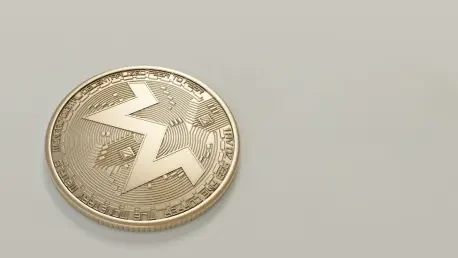Diving into the evolving landscape of cryptocurrency and privacy, we’re thrilled to sit down with Kofi Ndaikate, a seasoned expert in fintech, blockchain, and regulatory policy. With ShapeShift’s recent revival of privacy-focused features through Zcash shielded transaction support, Kofi offers a unique perspective on how decentralized platforms are navigating user privacy, regulatory challenges, and technological innovation. In this conversation, we explore the motivations behind ShapeShift’s pivot back to privacy coins, the impact of its transition to a decentralized autonomous organization (DAO), and the broader implications for the crypto space amid tightening global regulations.
What inspired ShapeShift to reintroduce support for Zcash shielded transactions after delisting privacy coins back in 2020?
The decision to bring back Zcash shielded transactions is rooted in ShapeShift’s evolution over the past few years. When privacy coins were delisted in 2020, the platform was still operating as a centralized exchange under intense regulatory scrutiny. That environment made it tough to support features that prioritized user anonymity. Now, as a decentralized exchange aggregator, ShapeShift has more flexibility to align with its core values of privacy and self-custody. This move reflects a broader push in the crypto community to reclaim financial sovereignty for users, especially as centralized platforms face increasing pressure to comply with invasive rules.
How did ShapeShift’s shift to a DEX aggregator play a role in this decision to support Zcash again?
Transitioning to a DEX aggregator was a game-changer. Unlike a centralized exchange, a DEX aggregator doesn’t hold user funds or enforce strict Know Your Customer policies. This structure reduces the regulatory burden that forced the delisting of privacy coins in the first place. It allows ShapeShift to focus on providing tools for users to trade and manage assets directly, without intermediaries. Supporting Zcash shielded transactions became a natural fit in this decentralized model, as it empowers users to maintain control over their financial privacy without the platform acting as a gatekeeper.
Can you break down what Zcash shielded transactions offer to ShapeShift users in terms of protecting their privacy?
Zcash shielded transactions use a powerful cryptographic tool called zero-knowledge proofs, which allow users to prove the validity of a transaction without revealing sensitive details like the sender, receiver, or amount. For ShapeShift users, this means they can trade or hold Zcash with a level of anonymity that’s rare in the crypto space, where most blockchains are transparent by default. It’s a significant step toward ensuring that personal financial data isn’t exposed on a public ledger, giving users peace of mind in an era where surveillance is a growing concern.
How does this privacy feature tie into ShapeShift’s broader mission?
Privacy has always been at the heart of what ShapeShift stands for—offering users the freedom to manage their assets without interference. By integrating Zcash shielded transactions, ShapeShift reinforces its commitment to self-custody and decentralization. It’s about giving people the tools to opt out of systems that demand constant oversight or data collection. This aligns perfectly with the ethos of building a financial ecosystem where individuals, not institutions, hold the power over their own money.
As a decentralized autonomous organization, how has ShapeShift’s community-driven structure influenced decisions like bringing back Zcash support?
Becoming a DAO has fundamentally changed how ShapeShift operates. Decisions are no longer made top-down by a small group of executives; instead, the community has a direct say through governance mechanisms. When it came to reintegrating Zcash, there was strong support from users who value privacy as a core principle of crypto. The DAO structure allowed these voices to shape the platform’s direction, prioritizing features that resonate with the community over short-term regulatory appeasement. It’s a stark contrast to the centralized model, where compliance often trumped user needs.
With the Zcash Community Grants providing $50,000 for technical and marketing efforts, how will ShapeShift utilize this funding to enhance its platform?
The grant is a fantastic boost for ShapeShift’s goals. On the technical side, the funds will help refine the integration of shielded transactions, ensuring they’re seamless and secure for users across different devices. There’s also a focus on optimizing the backend to handle these privacy features efficiently. For marketing, the money will go toward educating users about the importance of financial privacy and how to use shielded Zcash transactions effectively. It’s not just about offering the feature—it’s about making sure people understand why it matters and how to leverage it.
ShapeShift recently rolled out a redesigned interface with a Uniswap-style swapper. What was the vision behind this update?
The redesign aimed to make the platform more intuitive and accessible, drawing inspiration from Uniswap’s clean, user-friendly swapping interface. The goal was to simplify the trading process, especially for newcomers, while maintaining the robustness needed for advanced users. With a focus on mobile optimization, the new design ensures that users can trade on the go without sacrificing functionality. It’s about lowering the barrier to entry and making decentralized finance feel less intimidating, all while embedding privacy options like Zcash shielded transactions into the experience.
ShapeShift partnered with Liquify for its node network. What drove this collaboration, and how does it support your operations?
Partnering with Liquify was a strategic move to bolster ShapeShift’s infrastructure. Liquify’s node network provides reliable, decentralized execution for transactions, which is critical for a DEX aggregator aiming to offer fast and secure trades. This collaboration ensures that ShapeShift can handle the complexity of shielded transactions without compromising on speed or uptime. More importantly, it aligns with the decentralized ethos—by leveraging Liquify’s infrastructure, ShapeShift avoids reliance on centralized points of failure, reinforcing the commitment to privacy and user autonomy.
With regulators, especially in the EU, cracking down on anonymous crypto accounts and privacy coins, how is ShapeShift preparing for these challenges?
Regulatory pushback on privacy features is a real concern, especially with the EU’s upcoming rules set to ban anonymous accounts by 2027. ShapeShift’s approach is to stay ahead of the curve by emphasizing its decentralized nature. As a DAO and DEX aggregator, it’s not in the same position as centralized exchanges that can be easily pressured to enforce bans. The focus is on building resilient systems that empower users to maintain privacy regardless of regional laws. It’s also about fostering dialogue with regulators to highlight that privacy isn’t about hiding—it’s about protecting fundamental rights in a digital age.
Looking ahead, what is your forecast for the future of privacy-focused cryptocurrencies in the face of increasing global oversight?
I believe privacy-focused cryptocurrencies like Zcash will remain a critical part of the crypto ecosystem, even as oversight tightens. The demand for financial privacy isn’t going away— if anything, it’s growing as people become more aware of data exploitation. We’re likely to see a rise in innovative solutions, like hybrid protocols or “dark stablecoins,” that balance privacy with compliance. The challenge will be navigating a patchwork of global regulations, but the decentralized nature of these technologies gives them an edge. Ultimately, I think privacy coins will carve out a lasting niche, driven by users who refuse to trade freedom for convenience.









